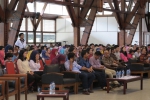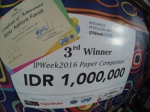IPWeek 2015: Be Ready to Face the Petroleum Idustries' Challenge
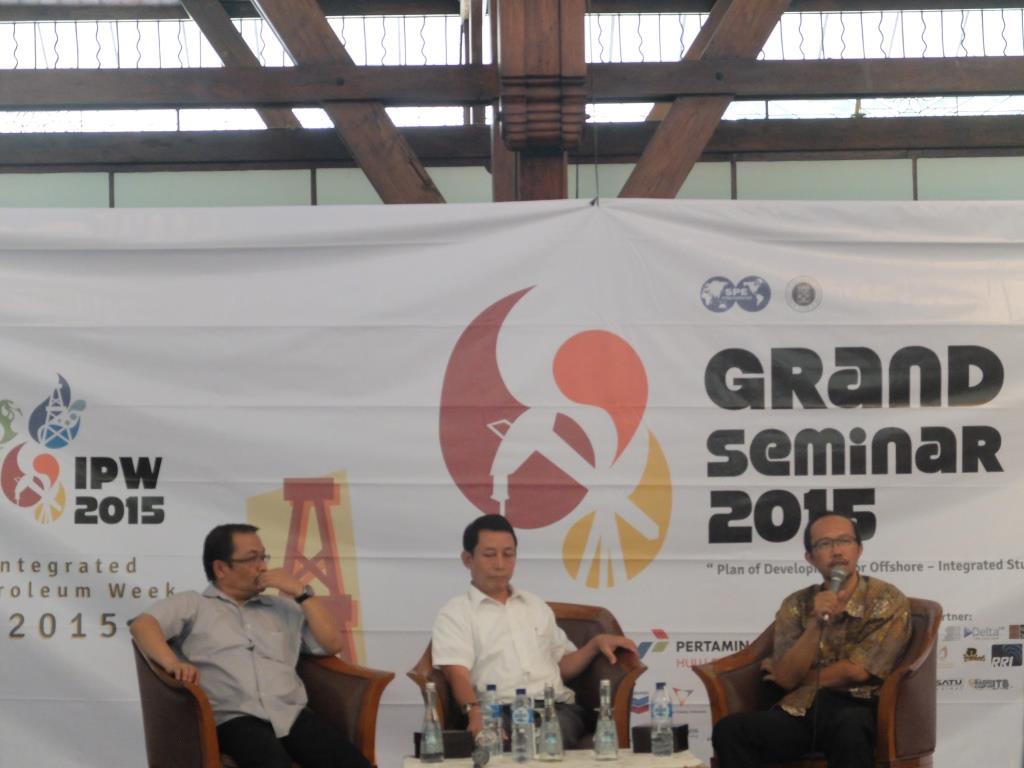
 Bandung, itb.ac.id - Integrated Petroleum Week (IPWeek) was held on Saturday-Sunday (28/08/02-03/15). IPWeek was a series of event held by Association of Petroleum Engineering Students (PATRA) in order to introduce the petroleum world to the society. The event consisted of International Rig Design Competition, International Petrosmart Competition, International Paper Competition, Integrated Company Days, and International Energy Conference.
Bandung, itb.ac.id - Integrated Petroleum Week (IPWeek) was held on Saturday-Sunday (28/08/02-03/15). IPWeek was a series of event held by Association of Petroleum Engineering Students (PATRA) in order to introduce the petroleum world to the society. The event consisted of International Rig Design Competition, International Petrosmart Competition, International Paper Competition, Integrated Company Days, and International Energy Conference.
IPWeek 2015 invited young generation who were interested in petroleum industry to know deeper about the petroleum issues, such as recent technology, findings, and innovation. Those topics are really important to face the future energy challenge. IPWeek 2015--who was chaired by Henry Tedja (Petroleum Engineering 2012)--also invited both Indonesian and overseas students, such as Japan, Malaysia, Thailand, Philippines, China, Australia, Vietnam, Egypt, Pakistan, and Abu Dhabi.
The main event of IPWeek was the grand seminar titled 'Plan of Development for Offshore-Integrated Study Approach'. The seminar was divided into three topics: finding of new energy, drilling, and processing. There were three speakers of the seminar, they were Dr. Agus Laesanpura (Geophysics Engineering), Hendarto Soembadi (Drilling Fluid Specialist Consultant), and Pekil Argo Dahono (Electical Power Engineering). In the seminar, Agus told many techniques to find oil resources. He concluded that engineers must be able to apply technology in new areas and be able to apply new technology in the old areas. He also emphasized the importance of idea innovation.
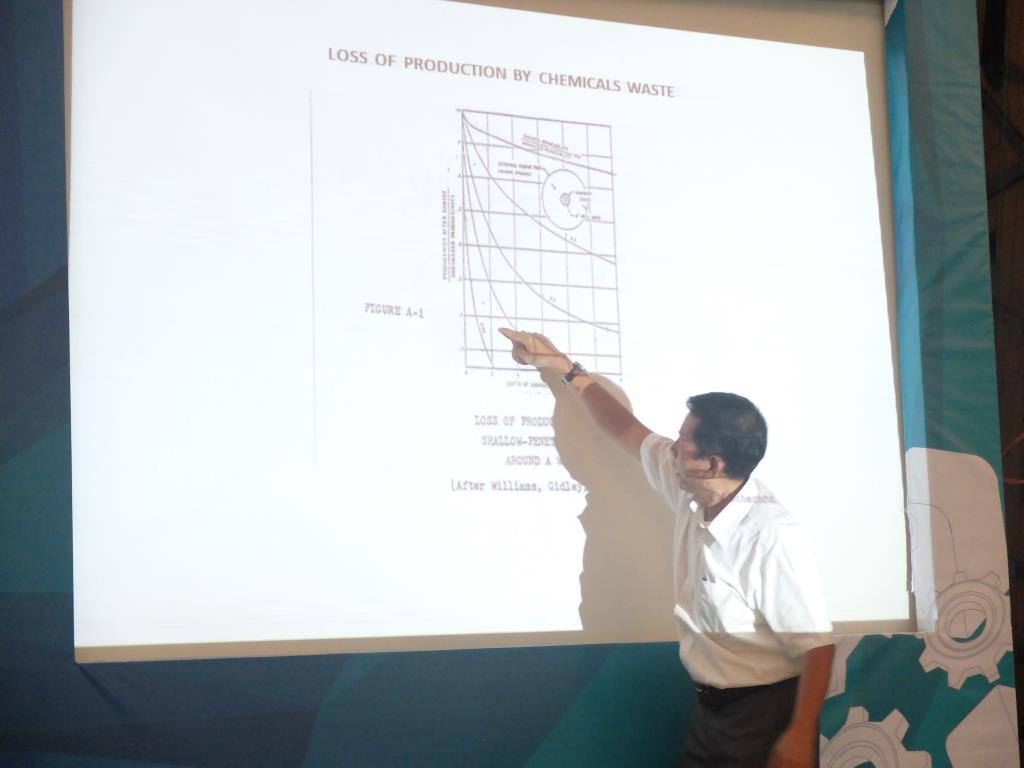 The second session that was brought by Hendarto discussed about efficient drilling. The drilling process does rely on its design. In its application, the drilling fluid will firstly contact with the reservoir. "Scientific communication happens between drilling fluid and reservoir. Therefore, engineering design must minimize the damage of the reservoir", said Hendarto. Since oil production in Indonesia is not much, Hendarto stated that effectivity and efficiency is a must thing to do to minimize the drilling cost.
The second session that was brought by Hendarto discussed about efficient drilling. The drilling process does rely on its design. In its application, the drilling fluid will firstly contact with the reservoir. "Scientific communication happens between drilling fluid and reservoir. Therefore, engineering design must minimize the damage of the reservoir", said Hendarto. Since oil production in Indonesia is not much, Hendarto stated that effectivity and efficiency is a must thing to do to minimize the drilling cost.
In his speech, Hendarto gave two study cases. The first case was a reservoir with drilling cost of US$10 million and produces 200 barrell of oil per day. The second case was a reservoir that produces 500 barrell per day with drilling cost of US$ 15 million. The second case was considered as cheap process due to its higher profit than the first one. Usually, the lack of oil production was caused by the trash that pollutes the environment and reservoir. Because of the trash, the flow of oil from the reservoir to the earth surface is blocked. Hendarto emphasized that using more sophisticated and expensive technology to avoid reservoir damage and to save the environment is not a big issue. To him, environmental damage will cost more than the technology itself.
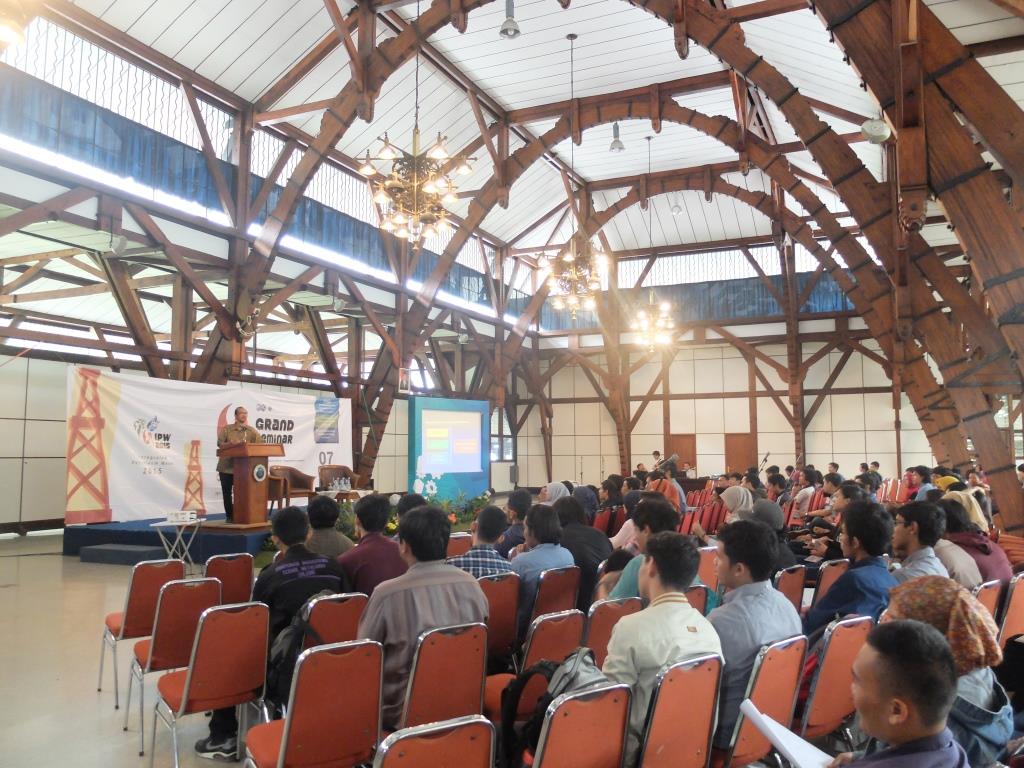 The third session, "Application of Power Electronics in Petroleum Industries" was brought by Pekik. Power Electronics is the application of electronics technology in electronics conversion. The conversion is carried out in order to run the process efficiently. In petroleum industries, power electronics are applied to machineries that utilize electrical power. "This method is carried out so that the obtained oil is not wasted," Pekik said. The power was converted into electrical power with higher efficiency to minimize the production cost. This technology is proven could save 30% of energy that is used in petroleum idustries.
The third session, "Application of Power Electronics in Petroleum Industries" was brought by Pekik. Power Electronics is the application of electronics technology in electronics conversion. The conversion is carried out in order to run the process efficiently. In petroleum industries, power electronics are applied to machineries that utilize electrical power. "This method is carried out so that the obtained oil is not wasted," Pekik said. The power was converted into electrical power with higher efficiency to minimize the production cost. This technology is proven could save 30% of energy that is used in petroleum idustries.
The main event of IPWeek was the grand seminar titled 'Plan of Development for Offshore-Integrated Study Approach'. The seminar was divided into three topics: finding of new energy, drilling, and processing. There were three speakers of the seminar, they were Dr. Agus Laesanpura (Geophysics Engineering), Hendarto Soembadi (Drilling Fluid Specialist Consultant), and Pekil Argo Dahono (Electical Power Engineering). In the seminar, Agus told many techniques to find oil resources. He concluded that engineers must be able to apply technology in new areas and be able to apply new technology in the old areas. He also emphasized the importance of idea innovation.
 The second session that was brought by Hendarto discussed about efficient drilling. The drilling process does rely on its design. In its application, the drilling fluid will firstly contact with the reservoir. "Scientific communication happens between drilling fluid and reservoir. Therefore, engineering design must minimize the damage of the reservoir", said Hendarto. Since oil production in Indonesia is not much, Hendarto stated that effectivity and efficiency is a must thing to do to minimize the drilling cost.
The second session that was brought by Hendarto discussed about efficient drilling. The drilling process does rely on its design. In its application, the drilling fluid will firstly contact with the reservoir. "Scientific communication happens between drilling fluid and reservoir. Therefore, engineering design must minimize the damage of the reservoir", said Hendarto. Since oil production in Indonesia is not much, Hendarto stated that effectivity and efficiency is a must thing to do to minimize the drilling cost.In his speech, Hendarto gave two study cases. The first case was a reservoir with drilling cost of US$10 million and produces 200 barrell of oil per day. The second case was a reservoir that produces 500 barrell per day with drilling cost of US$ 15 million. The second case was considered as cheap process due to its higher profit than the first one. Usually, the lack of oil production was caused by the trash that pollutes the environment and reservoir. Because of the trash, the flow of oil from the reservoir to the earth surface is blocked. Hendarto emphasized that using more sophisticated and expensive technology to avoid reservoir damage and to save the environment is not a big issue. To him, environmental damage will cost more than the technology itself.
 The third session, "Application of Power Electronics in Petroleum Industries" was brought by Pekik. Power Electronics is the application of electronics technology in electronics conversion. The conversion is carried out in order to run the process efficiently. In petroleum industries, power electronics are applied to machineries that utilize electrical power. "This method is carried out so that the obtained oil is not wasted," Pekik said. The power was converted into electrical power with higher efficiency to minimize the production cost. This technology is proven could save 30% of energy that is used in petroleum idustries.
The third session, "Application of Power Electronics in Petroleum Industries" was brought by Pekik. Power Electronics is the application of electronics technology in electronics conversion. The conversion is carried out in order to run the process efficiently. In petroleum industries, power electronics are applied to machineries that utilize electrical power. "This method is carried out so that the obtained oil is not wasted," Pekik said. The power was converted into electrical power with higher efficiency to minimize the production cost. This technology is proven could save 30% of energy that is used in petroleum idustries. 
scan for download







